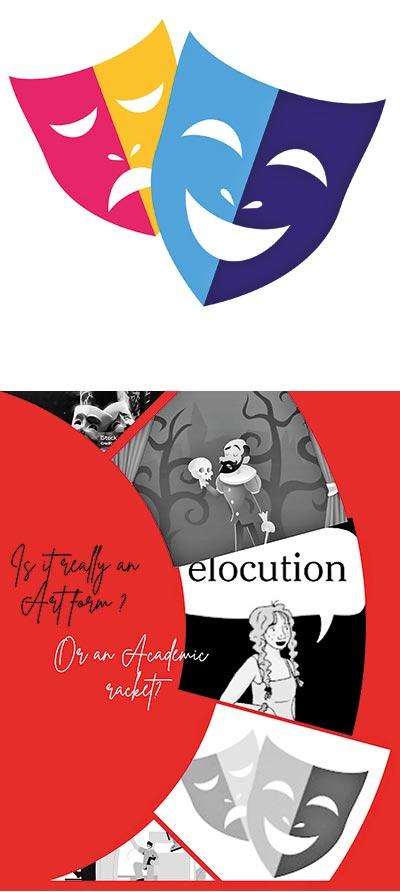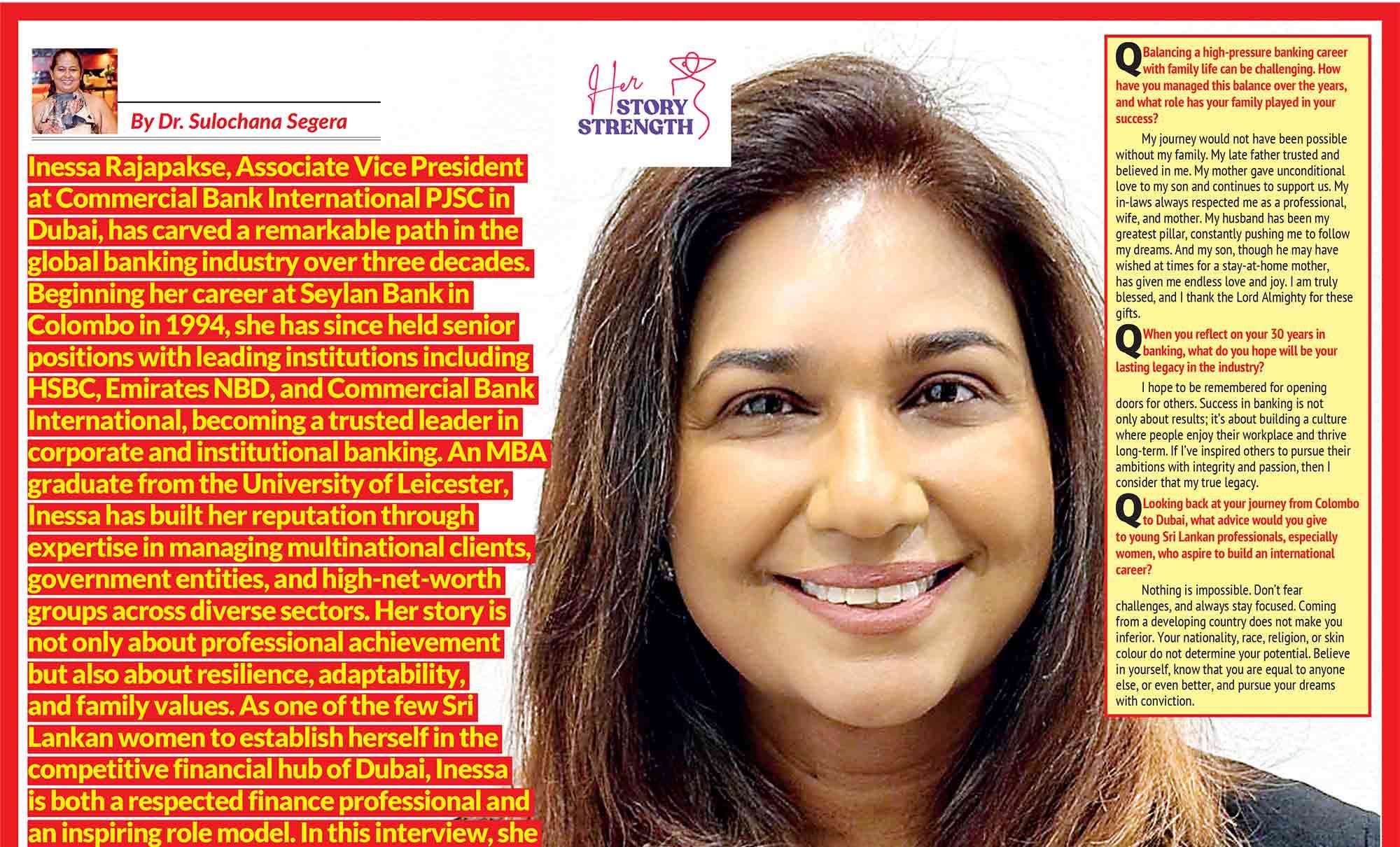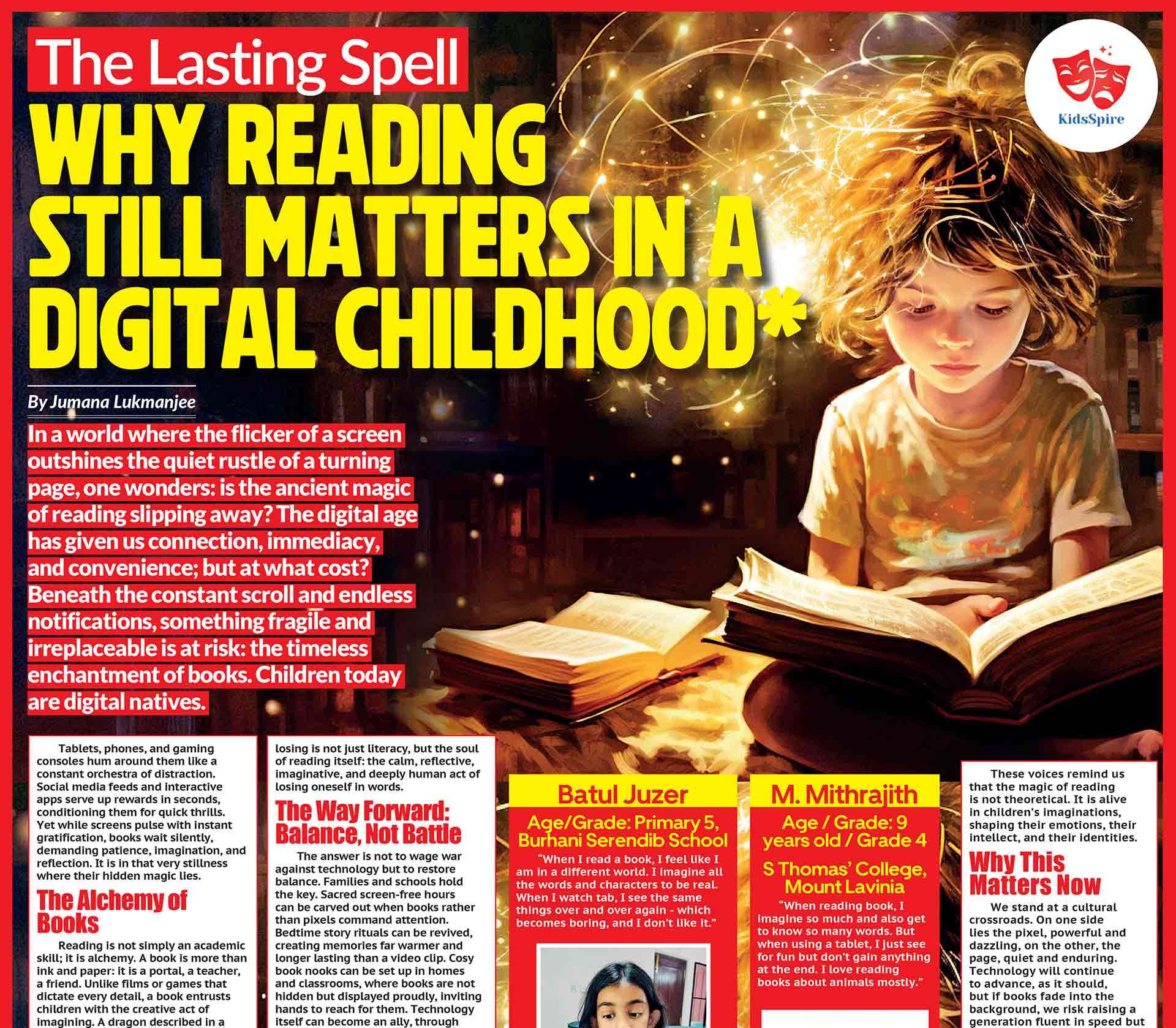Act 1: The Promise of Polished Speech
In many Sri Lankan homes, there exists a quiet desperation, the urgent need to “speak proper English.” Not just any English, mind you. We're talking about crisp consonants, theatrical expression, poised pronunciation, and a flair so polished it might outshine a BBC news anchor. Enter: Elocution; the glittering solution. Or is it? Across the country, from middle-class living rooms to inner-city community halls, the word is whispered like a spell. “Have you enrolled her for elocution?” becomes the parental refrain. The promise? Confidence. Clarity. Class. And most of all: an accent. But what lies behind the velvet curtain?
 Act II: The Origins: British Ghosts in the Classroom
Act II: The Origins: British Ghosts in the Classroom
Elocution in Sri Lanka has long carried the ghost of Empire; a colonial import. It was never just about communication. It was about conformity. Speak like the colonizer, and doors opened. Don’t, and the world might just pass you by. Today, that ghost wears a different mask. In modern Sri Lanka, it’s not about colonial loyalty. It’s about survival. Most government schools don’t teach English until upper primary or even later. The result? Students, even bright ones, arrive at O/Ls barely able to form a coherent sentence in English. So, elocution centers have filled the gap. But in doing so, they’ve also opened a Pandora’s box.
Act III: A Business or a Boon?
Here’s where the plot thickens. Elocution, once a niche offering, has now exploded into a booming cottage industry. Tiny tuition rooms, glittery posters with Shakespeare quotes, 'Speech and Drama' diplomas handed out like candy; it's hard not to ask: Is this truly education? Or just a business with fancy vowels? Many 'elocution classes' have no regulation. Teachers vary wildly in training; some are experienced performers, while others have no pedagogical background at all. Alarmingly, many are offering essay writing, grammar correction, even literature tuition under the name of 'elocution.'
That’s not drama. That’s deception. And yet, parents pay. Some fork out tens of thousands annually. For what? For a child to recite a poem they don’t understand. For a certificate from a UK board, they've never heard of.
Act IV: The Trained and the Talented
Let’s be clear: not all elocution is fraud. There are genuinely trained teachers; passionate, certified, artistically gifted individuals who’ve studied the techniques of speech, breath, voice modulation, and stage craft. Under their guidance, children learn not just pronunciation, but confidence, presence, and the power of voice. For students who struggle to speak in public, who are silenced by fear or inhibited by weak schooling, these teachers can be life changing. But the problem? There’s no oversight. No central body. No regulation. And without it, the line between art and scam grows perilously thin.
Act V: Schools in the Shadows
The real tragedy? The actual school system. Most government schools lack trained English teachers, especially at primary level. Some students reach Grade 6 without being able to form a complete English sentence. In these cases, elocution isn’t a luxury; it’s a lifeline. But shouldn’t the schools be offering this themselves? Instead, what should be a basic part of education has become privatized, sold off in glittery packages by entrepreneurs. English proficiency, especially spoken English, has become a commodity, and elocution the packaging. The poor can’t afford it. The rich can manipulate it. And in between lies a confused mass of parents, unsure if they’re empowering their child, or being sold a dream.
Act VI: What’s in a Word?
Let’s pause and ask: What is 'elocution' anyway? If it’s about communication, then why the obsession with accent? If it’s about drama, then why so many worksheets and essays? If it’s about confidence, then where are the open stages and debates? When misused, elocution becomes a parody, students memorizing lines without meaning, reciting foreign poems in colonial tones, mimicking a culture that isn’t theirs. But when used well, by trained, passionate teachers, it transforms. Children discover their voice. Not just how to speak, but how to express. How to be heard.
Final Act: Curtain Call or Call to Action?
So, is elocution in Sri Lanka a bogus racket or a necessary art? The answer: Both. In a broken education system where spoken English is neglected, elocution offers light. But in the absence of regulation, it also casts a shadow. We need:
- Quality control. Not every teacher is a real educator.
- Recognition of local voices. Sri Lankan English has beauty. Let’s teach students to speak clearly, not to mimic a foreign lilt.
- Inclusion in schools. If elocution is essential, why is it still a private privilege?
- Let’s reclaim elocution. Not as a symbol of class or colonial residue, but as a true art form. An expressive, inclusive tool that gives voice to a new generation, in all its accents, rhythms, and passion.
Parent’s Guide: Choosing the Right Elocution Teacher
For many parents, selecting the right elocution teacher can feel overwhelming. Here are a few key points to consider before enrolling your child:
Check Qualifications: Look for teachers who hold recognized diplomas or licentiates in Speech & Drama, Communication, or English teaching from reputed boards or universities.
Experience Matters: Ask how many years they have been teaching, and whether they have experience preparing students for both exams and stage performance.
Observe a Class: Sit in for a trial session if possible. A good teacher will encourage expression, interaction, and confidence; not just rote learning or worksheets.
Ask for Proven Success: Inquire about past students: Have they excelled in exams, debates, or stage competitions? Real-world achievements are a better measure than just certificates.
Teaching Style: Look for a balance between pronunciation, performance, and communication. Beware of teachers who focus only on accent or on exam drilling.
References and Reviews: Ask other parents for recommendations or look for testimonials. Word of mouth is often the best indicator of genuine impact.
Child’s Comfort: Most importantly, ensure your child feels supported and inspired by the teacher. Confidence grows in a positive, encouraging environment. By asking the right questions, parents can avoid being misled by glossy promises and instead choose mentors who truly help children find their voice.
At its best, elocution is not about mimicking borrowed voices, but about empowering young people to discover their own. It can be the art of liberation, a chance to be heard, to stand tall, and to speak with conviction. As one dramatist once said: “Speech is power: speech is to persuade, to convert, to compel. It is to bring light out of darkness, and voice out of silence.”












